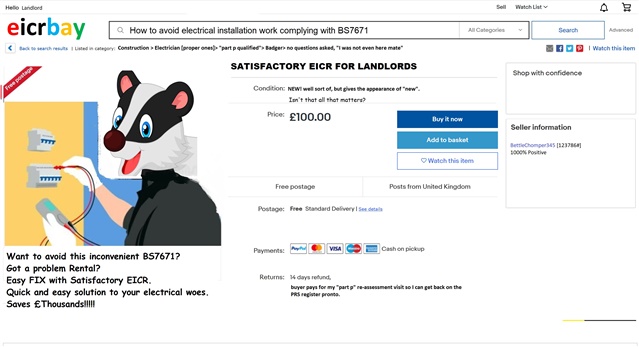Should EICR (Electrical Instalation Condition Report) be stored nationally or locally in a digital format in a similar way to an EPC (Energy Performance Certificate)?
This would allow for people and companies to look up the information rather than it being hidden away. Knowledable people could then have a chance to look at the results or at the previous results to make comparisons and have some historical imformation on the site. Furthermore it would allow for the information to be checked at a later date should the requirement arise. (Grenfell Tower inquiry is a casing point) It has come to light that some of the EICR may not be wholly accurate.

